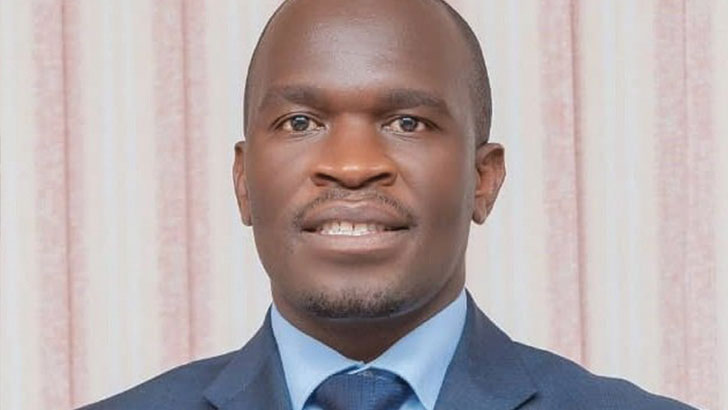AG moves on sattar, karim
Government has cancelled contracts with companies linked to businessperson Zuneth Sattar, but says it will honour payments for goods already supplied.
In a statement released yesterday, Attorney General (AG) Thabo Chakaka Nyirenda said he has made this decision in his capacity as principal legal adviser to the Malawi Government and on behalf of public sector procuring entities.
The basis of his decisions, said the AG, is convenience and public interest, pursuant to section 46(c) of the Public Procurement and Disposal of Assets Act, 2017.

Reads the statement in part: “In terms of Section 46 (c) of the Procurement and Disposal Assets Act, Government enjoys immunity from paying a supplier lost profits and any other expenses reasonably incurred.”
The AG has also debarred Sattar companies from any future involvement in public procurement.
Nyirenda said his office has come across information circulating in print and social media regarding Sattar’s dealings with public sector procuring entities over the past 11 years that has compelled the AG’s office to block the firms connected to the businessperson.
According to the AG, Sattar owns or has connections with Top Prima FZE, Malachite FZE, Xaviar Investment Ltd, Xelite Strips, Molecules General Trading, Pryte General Trading, which trade or do business with the government.
Chakaka Nyirenda said consequent to the allegations of the said questionable procurement-related issues, his office advised procuring entities to submit copies of Sattar-linked contracts to his office.
Nyirenda has also announced a 60-day amnesty for all individuals and institutions that may have been complicit in the dubious deals to come forward.
“Pursuant to justice and restitution balancing act, the Attorney General also wishes to announce a 60-day general amnesty to all those who might have defrauded Government or illicitly acquired wealth whether through procurement fraud and corruption or otherwise, but willing to restitute or voluntarily surrender the said wealth within 60 days from the date hereof.
“The amnesty extends to the 77 Cashgate files that are currently before the prosecution authorities, the commercial banks that facilitated Cashgate and to the investigations connected with Mr. Zuneth Sattar,” said Nyirenda.
However, reacting to the 60-day amnesty yesterday, University of Cape Town law professor Danwood Chirwa faulted the decision to provide an option of no criminal prosecution for those who aided and abated the plunder of public resources.
He said: “The amnesty is not backed by the law. Prosecutions and investigations don’t lie with the office of the Attorney General. He is acting outside his authority.
“There is no immunity law in Malawi. The appropriate approach is to bring charges. People should plead guilty, and are sentenced to lesser sentences.”
Professor Chirwa’s view is not fully shared by governance watchdog Youth and Society (YAS) executive director Charles Kajoloweka, who welcomed the amnesty and applauded government for debarring the companies.
He said: “The move by the AG sends a serious message that it will cost you if you are involved in corruption. This is what we should really be doing as a country to fight corruption.
“It’s also important that while we look at how the investigation is going on, we should also look at how such resources that might have been lost through dubious contracts.”
On amnesty, Kajoloweka said it was also part of the political campaign and the idea is for government to quickly recover the resources without a lengthy and costly court trial.
“What is important is that the amnesty should be more transparent and accountable. We expect the AG to develop a clear model on how the amnesty is going to work,” he said.
In a related development, the AG has also debarred companies belonging to Zameer Karim, who is on trial for the food rations scandal at Malawi Police Service. The case is ongoing at the Chief Resident Magistrate’s Court in Lilongwe.
“The contract to supply food rations at Malawi Police Service violated the Public Procurement and Disposal of Assets Act as well as the Corrupt Practices Act.
“In view of the foregoing, I advise that all companies owned by and all the companies associated with or connected to Zameer Karim, including the following companies: [Pioneer Investments and Oil and Protein Limited] should not be allowed to conduct business with government or any government entity,” the AG said in a statement dated December 15 2021.
Last month, after the AG debarred some companies, the Public Procurement and Disposal of Assets Authority (PPDA) director general Edington Chilapondwa said debarment is a long process.
Under Section 20 of the PPDA Act, the institution’s director general, after reasonable notice to the bidder or supplier, and after providing reasonable opportunity for that bidder or supplier to be heard and consultation with the affected procuring entities, may exclude a bidder or supplier from participation in procurement for the misconduct prescribed in this Act and the Regulations, in accordance with procedures set out in the Regulations






One Comment